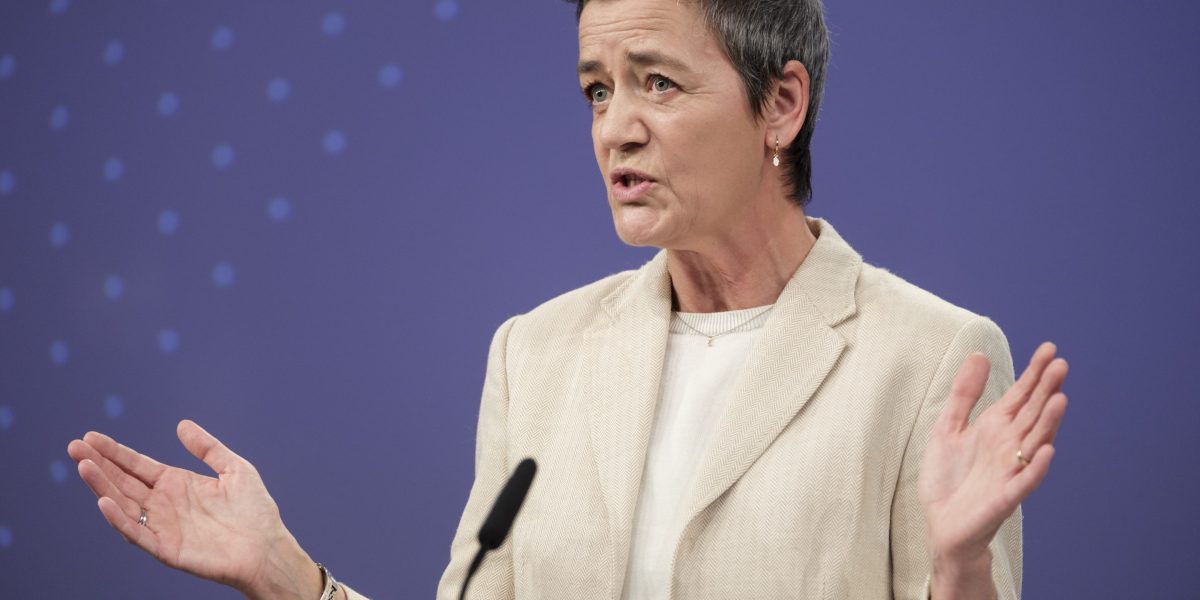This post was originally published on this site
https://fortune.com/img-assets/wp-content/uploads/2024/04/GettyImages-2105318598-e1712758360339.jpg?w=2048
Although China has seen economic pressures hurt demand, it’s relied on exports to reinvigorate trade. By upping subsidies, the Chinese government has managed to grow exports while reducing the price of goods it manufactures—and the EU has caught wind of the trend.
Brussels is now kicking up its scrutiny of Chinese suppliers in the European wind-turbine market that’s estimated to be worth $4.3 billion.
The EU plans to dig into government subsidies given to Chinese turbine suppliers currently used in wind farms across Spain, France, Bulgaria, and more, EU competition chief Margrethe Vestager said in a Tuesday speech made in Princeton, N.J.
Vestager announced the move just days after the European Commission decided to launch a probe into subsidies given to Chinese companies for solar farms in Romania. Separately, the EU also opened an anti-subsidy investigation into Chinese-made battery EVs last year.
“We saw the playbook for how China came to dominate the solar panel industry,” Vestager said, adding that China’s power play had resulted in European companies making less than 3% of the solar panels installed in the region.
She outlined the steps China typically follows, starting with attracting foreign investment, acquiring technology, and offering generous subsidies to domestic players so it can make turbines at much lower prices than its rivals elsewhere.
“We can’t afford to see what happened on solar panels happening again on electric vehicles, wind, or essential chips,” she said.
European majors like Siemens Energy still dominate the market for wind turbines, but have seen competition from cheaper Chinese alternatives, forcing them to slash costs and bear losses. China’s bid to get a bite of the turbine-making market comes at a time when there’s growing focus and investment into green technology.
It’s unclear which Chinese companies will be investigated by Brussels.
Is it a subsidy issue?
The West has tried to bark at Chinese competition by pinning it to fostering overcapacity in industries like energy and EVs. But Beijing has denied these claims, calling them “groundless” as China’s companies are flourishing because of innovation rather than subsidies, commerce minister Wang Wentao said this week.
If the ongoing EU probe into unfair subsidies results in findings against China, it could result in additional tariffs on EV imports.
As far as wind turbines go, China’s Chamber of Commerce to the EU said it was dissatisfied with the probe by the bloc.
“This action sends a detrimental signal to the world, suggesting discrimination against Chinese enterprises and endorsing protectionism,” the group, which represents Chinese business interests in the European region, said in a statement.
The last time the EU launched a big probe into China, the Asian superpower hit back at the bloc with an antidumping probe over brandy imports. What will it be this time?





